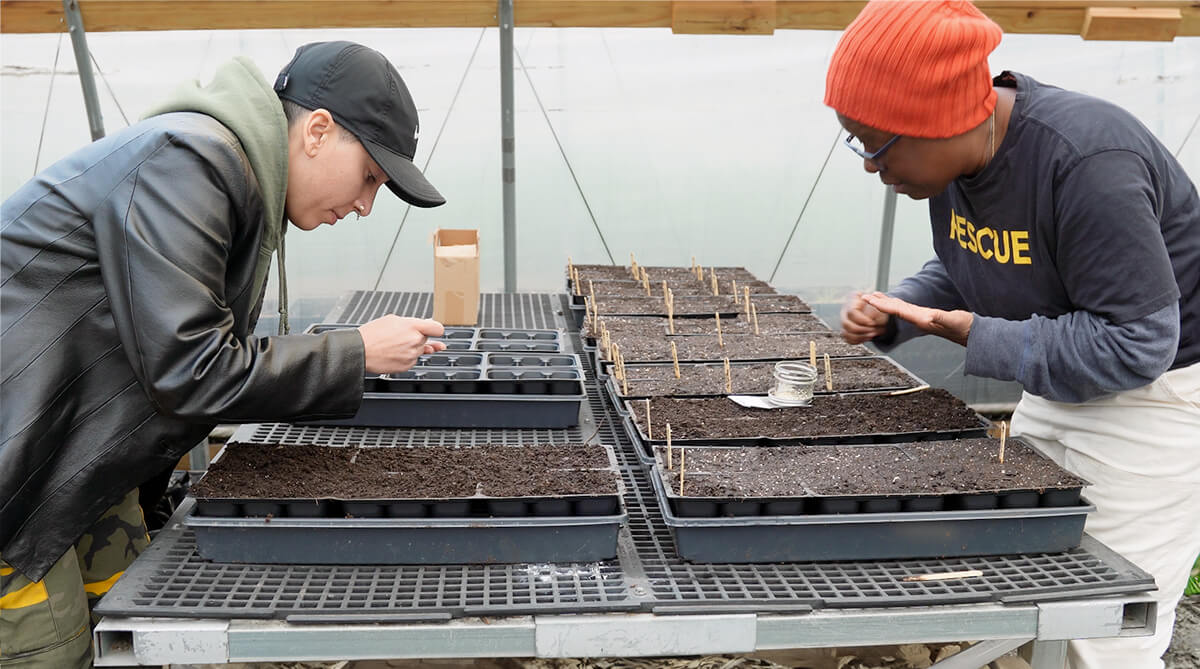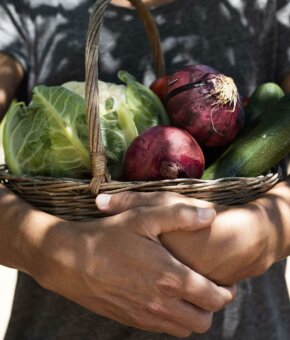
Discover the heart of NYC’s urban farming revolution with an inside look at the most innovative and impactful urban agriculture projects transforming the city into a leading hub for urban farming excellence.
At Sustainable Urban Delta (SUD), our dedication lies in reshaping urban landscapes into thriving hubs of food production, thereby fostering healthier, more resilient and sustainable cities. In pursuit of this vision, we embarked on a journey through New York City, exploring a variety of impactful urban agriculture initiatives that contribute to food justice, inclusivity, and education.
We engaged with a diverse group of key stakeholders, including senior-level policymakers, food justice activists, educational experts, architects, and mission-driven entrepreneurs. This exploration allowed us to witness firsthand the dynamic transformation and the growing momentum of this movement in the heart of one of the world’s most iconic cities.
Dive into the heart of New York City’s green transformation with our captivating 7-minute mini-documentary below.
Urban Agriculture’s Critical Role in NYC
Urban agriculture in NYC holds a critical role, especially considering that approximately 1.09 million residents face food insecurity. This underscores the immense potential for urban farming to create impactful change. In a city buzzing with life, every rooftop, brownfield, and green space is seen not just as an empty area but as an opportunity to foster a more food-secure future for all New Yorkers. These initiatives resonate deeply with Sustainable Urban Delta’s vision of transforming urban environments into lively, self-sustaining communities.
Gotham Greens: Pioneering Urban Hydroponics
Gotham Greens, led by CEO Viraj Puri, exemplifies this revolution with its state-of-the-art hydroponic greenhouses. Puri notes, “More than 70% of the world’s population lives in cities. By locating these greenhouses right in the city, we’re able to get a fresher, more nutritious product to market using fewer resources.”

This approach is a testament to SUD’s vision of integrating food production into urban planning for impactful change. Find out more about Gotham Greens here.
Brooklyn Grange: Rooftop Farming for Equity
Anastasia Cole Plakias, co-founder of Brooklyn Grange, is a staunch advocate for equal access to fresh, nutritious food. At the forefront of Brooklyn Grange’s pioneering rooftop farming ventures, she firmly believes,
Fresh healthy food should be a right shared by all, not a privilege held by few.
Their rooftop farms are not just food-producing spaces but also vital environmental resources, echoing SUD’s belief in storytelling to inspire urban developers. Click here to read more about Brooklyn Grange.
Edible Schoolyards: Shaping Young Minds
Edible Schoolyard NYC integrates gardening and food education into children’s learning, transforming schoolyards into vibrant spaces where kids actively engage with the food system through growing and cooking.
Their director, Shannon Morris, brings the magic of growing food into the lives of children. Morris emphasizes the transformative impact of these programs:
Magic happens here… Children learn about the food system by making recipes and growing food.
The creation of an organic edible garden from a former parking lot was a pivotal moment for architects Amale Andraos and Dan Wood. Their work on the Edible Schoolyard NYC stands as an architectural marvel, crafted to spark children’s curiosity through its design and structure.

This project, which Andraos describes as a dream realized, has garnered multiple accolades, highlighting its significant contribution to the field. Read more about Edible Schoolyard in this article.
Just Food: Food Security and Sovereignty
Just Food empowers the NYC’s communities by focusing on food security and sovereignty, highlighting the importance of growing culturally relevant food. Their aim is to create a positive impact not only in New York City but also beyond, with a commitment to racial, economic, and environmental equity.
As Sunny Vazquez, Just Food’s Agriculture Assistant told us:
We grow food for food security and food sovereignty… being able to grow culturally relevant food is important.
The community gardens are not just about growing food; they are about growing the community.

“We grew up in a time where everything was individualistic. But here, everything is about community. Everything is about solidarity. And that to me makes me very hopeful,” says Sheryll Durant, the Board President of Just Food. Read more about Just Food here.
Policy and Progress: Shaping Urban Agriculture in NYC
Qiana Mickie, serving as the Executive Director of Urban Agriculture in NYC’s Mayor’s Office, is a vital player in developing the city’s urban agriculture initiatives. Her work focuses on transforming underutilized urban spaces into productive green areas, addressing climate and food injustices, and fostering economic empowerment through urban farming entrepreneurship.
Even in a small space, you can still grow a great amount of food… we can grow to scale if we are getting the appropriate resources and infrastructure and access to opportunities…

Mickie’s vision emphasizes the scalability and accessibility of urban agriculture. Her efforts are not just about growing food; they represent a comprehensive approach to creating resilient, equitable urban communities. Read more about Qiana Mickie’s work here.
Join Our Mission
In our journey with Sustainable Urban Delta (SUD), we’ve discovered the immense potential of urban agriculture in reshaping city landscapes. This approach to food production is a key driver in creating more sustainable and resilient urban environments. Our experiences in NYC have reinforced our commitment to support and promote such transformative initiatives.
For further insights into our urban agriculture projects and to explore collaboration opportunities with SUD, we invite you to connect with us. Together, we can forge a path toward a healthier, greener, and more food-secure urban future.



